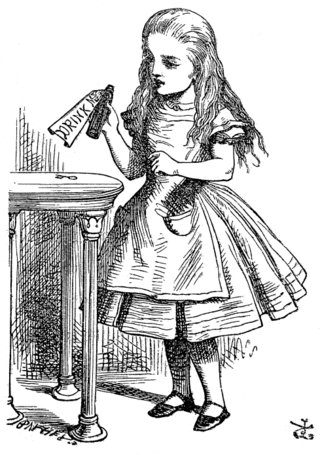Mary Ann or Maryann or Mary Anne is a feminine given name, a combination of the names Mary and Anne. It may refer to:
Mary Ann or Maryann or Mary Anne is a feminine given name, a combination of the names Mary and Anne. It may refer to:

Anne, alternatively spelled Ann, is a form of the Latin female name Anna. This in turn is a representation of the Hebrew Hannah, which means 'favour' or 'grace'. Related names include Annie.
Eliza is a female given name in English, meaning "pledged to God" or "joyful."

Agnes is a feminine given name derived from the Greek Ἁγνή Hagnḗ, meaning 'pure' or 'holy'. The name passed to Italian as Agnese, to French as Agnès, to Portuguese as Inês, and to Spanish as Inés. It is also written as "Agness". The Greek name descends from the Proto-Indo-European *h₁yaǵ-, meaning 'to sacrifice; to worship', from which also the Vedic term yajña originates. The name is mostly used in Greece and in countries that speak Germanic languages.

Sarah is a common feminine given name of Hebrew origin. It derives its popularity from the biblical matriarch Sarah, the wife of Abraham and a major figure in the Abrahamic religions. It is a consistently popular given name across Europe, North America, and the Middle East — being commonly used as a female first name by Jews, Muslims, and Christians alike, and remaining popular also among non-religious members of cultures influenced by these religions.
Dianne may refer to:
Marjorie is a female given name derived from Margaret, which means pearl. It can also be spelled as Margery, Marjory or Margaery. Marjorie is a medieval variant of Margery, influenced by the name of the herb marjoram. It came into English from the Old French, from the Latin Margarita (pearl). After the Middle Ages this name was rare, but it was revived at the end of the 19th century.

Hannah, also spelled Hanna, Hana, Hanah, or Chana, is a feminine given name of Hebrew origin. It is derived from the root ḥ-n-n, meaning "favour" or "grace". A Dictionary of First Names attributes the name to a word meaning 'He (God) has favoured me with a child'. Anne, Ana, Ann, and other variants of the name derive from the Hellenized Hebrew: Anna (Ἅννα)
Leanne, LeAnne, Leann, LeAnn, Lee-Anne, Lee Anne, Lee-Ann, Lee Ann, Li-Anne, etc. are female given names and may refer to one of the following people:

Nancy is an English language given name for women. The name Nancy was originally a diminutive form of Annis, a medieval English vernacular form of Agnes. In some English dialects, "mine" was used instead of "my" and "Mine Ancy" eventually became Nancy. The name was also later used as an English diminutive of Anne or Ann. It has been used as an independent name since the 18th century. In some instances it replaced variant Nanny, which was associated with the stereotype of a common, promiscuous woman from the 1600s onward. Spelling variants in use include Nancea, Nancee, Nancey, Nanci, Nancie, Nancsi, Nancye, Nanncey, Nanncy, Nansee, and Nansi. Similar names include Nan, Nance, Nanette, Nannerl, and Nannie.

Alice is a feminine first name with roots in the French and German languages.

Edna is a feminine given name originating from several languages. In Hebrew, it means "pleasure, delight". The name appears in the Biblical apocryphal Book of Tobit as the mother of Sarah and stepmother of Tobias. In Ireland, the name has been used as an Anglicized form of the Irish name Eithne. It is etymologically related to the name Eden. It has been in use in the Anglosphere since the 1600s, when it was often spelled Ednah. The name was particularly well-used in the late 19th and early 20th centuries, but has since declined in use.

Anna is a feminine given name, the Latin form of the Greek: Ἄννα and the Hebrew name Hannah, meaning "favour" or "grace".

Elizabeth is a feminine given name, a variation of the Hebrew name Elisheva (אֱלִישֶׁבַע), meaning "My God is an oath" or "My God is abundance", as rendered in the Septuagint.
Helen is a feminine given name derived from the Ancient Greek name Ἑλένη, Helenē, which descends from Proto-Hellenic *Ηwelénā, from a pre-Hellenic or late Proto-Indo-European *Swelénā, ultimately derived from the Indo-European root *swel-.

Mary is a feminine given name, the English form of the name Maria, which was in turn a Latin form of the Greek name Μαρία, María or Μαριάμ, Mariam, found in the Septuagint and New Testament. The latter reflects the original Hebrew pronunciation of the name מרים, as attested by the Septuagint. The vowel "a" in a closed unaccented syllable later became "i", as seen in other names such as "Bil'am" (Balaam) and "Shimshon" (Samson).

Martha is a feminine given name. Patti, Patsy, and Patty were in use in Colonial America as English rhyming diminutives of the diminutive Mattie. Molly has been used as a diminutive of Martha since the 1700s.
Janet is a feminine given name meaning "God is gracious" or "gift from God". It is the feminine form of John. It is a variation of the French proper noun Jeannette, Spanish proper noun Juanita, Russian Жанет (Zhanet), Circassian Джэнэт (Dzhenet), and Hungarian Zsanett. It is also the diminutive of Jeanne or Jane.
Caroline is a feminine given name, derived from the masculine name Charles. Common nicknames and variations include Callie, Cara, Carol, Carole, Carolina, Carolyn, Carly, Carrie, and Caz.
Carrie is a female given name in English speaking countries, usually a pet form of Caroline or Carolyn. Other spellings include Cari, Kari, Karie, Kerry, Carri, Karri, Kerrie, Kerri, Keri, Cerry, and Karrie, as well as various other spellings. Related names may include Carol, Caroline, Carolyn, Carolyne, or Carolynne.